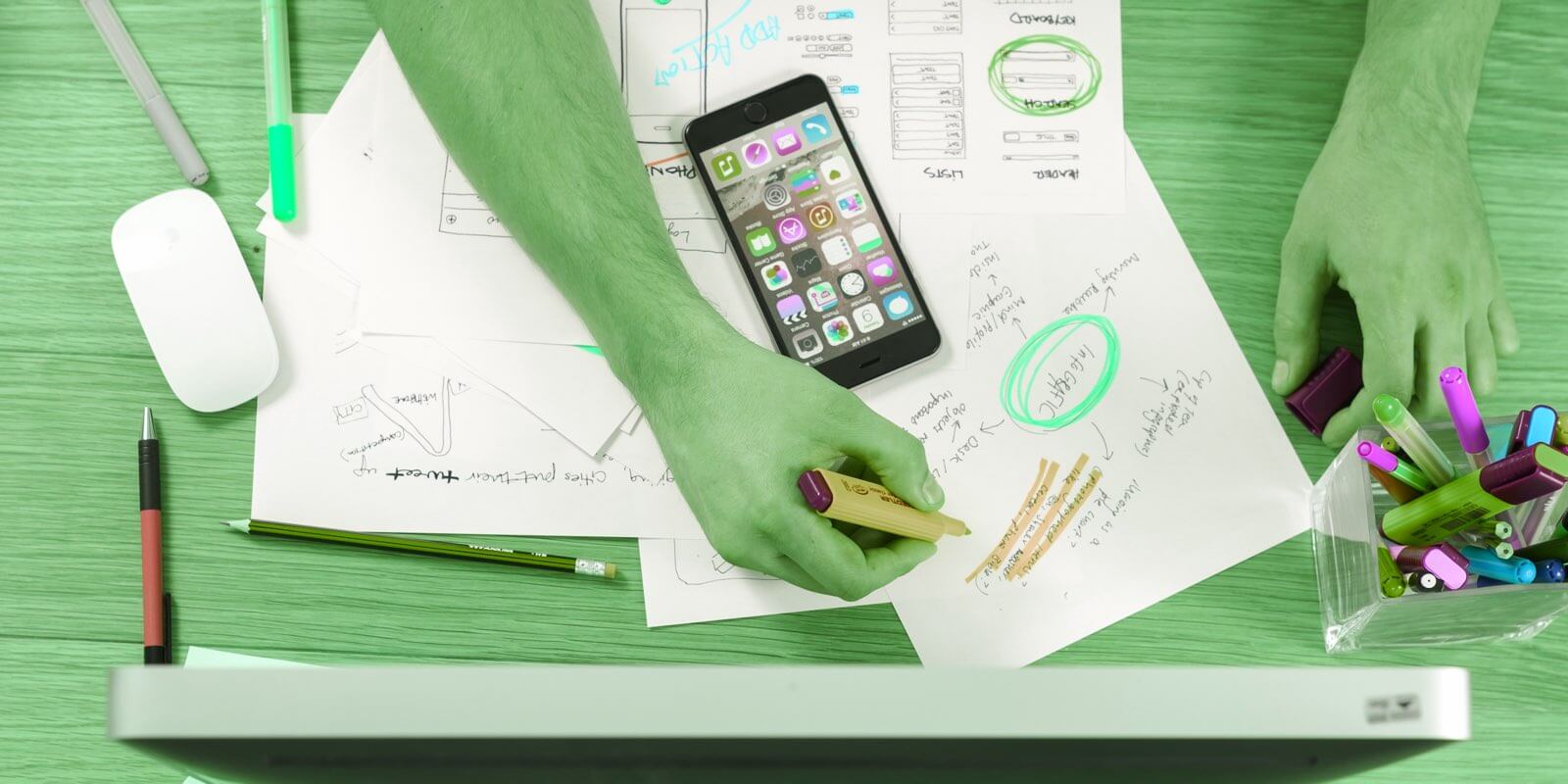Trying to help someone with anxiety can be frustrating…
- Thoughtful advice often gets ignored or criticized
- Sympathy and support frequently don’t seem to make a lasting difference
- Plus, just being around someone with high-anxiety gets stressful and discouraging over time
As a psychologist who specializes in anxiety and spent years working almost exclusively with anxious people, I can certainly relate.
I can also tell you that what makes dealing with anxiety especially challenging—both for them and you—is that anxiety itself is a paradoxical problem…
Often the harder you try to help with anxiety the worse it gets.
Luckily, this doesn’t mean you can’t help people with anxiety. It just means you have to learn how to think about it differently—specifically, like a professional would.
In the rest of this article, I’ll show you 3 counterintuitive but very effective ways to help support a friend or loved one who struggles with anxiety.
1. Manage Your Own Anxiety First
This one can be a little tough to hear, so brace yourself:
The biggest obstacle to helping someone who’s anxious is your own anxiety.
Yes, that means you have anxiety. Maybe not chronic anxiety. And maybe you don’t get anxious in most situations in life. But…
If you really love or care for someone, and they’re suffering with something painful like anxiety, it’s completely natural to feel anxious about that person and your own ability to help.
Of course, if you don’t normally struggle with anxiety you’re probably not used to thinking much about it. Which means you may not be very aware of how anxious you actually get when you’re trying to help someone who’s anxious.
I know this is true for me…
- I’m not a particularly anxious person and it’s never been a major struggle for me.
- But when I first started working with anxious people in therapy , I started getting the same feedback from my supervisors and mentors: You’re too impatient. Slow down. Relax. Give them some breathing room.
- What I didn’t realize but my more experienced supervisors were picking up on was not just that I was impatient in therapy, but that my impatience was a symptom of something deeper: my own anxiety.
- As I reflected on this and talked about it with my own therapist, it became painfully obvious that, despite not being “an anxious person,” in therapy I was getting quite anxious about my own ability to help my anxious clients! And worse, this anxiety-fueled impatience was interfering with my ability to help them effectively.
- Thankfully, over time, I learned to become more self-aware about my anxiety about helping others with their anxiety, and as a result, it became less and less of an obstacle.
My point is that whether you think of yourself as anxious or not, there’s a good chance you are getting anxious when helping anxious people. And that this anxiety is making it harder.
Here are a few common indicators or signs that you’re anxious when dealing with anxious people:
- Impatience. If, like me, you find yourself frequently impatient and frustrated when you’re dealing with an anxious person, often this is a response to your own underlying fears about not being helpful or the other person not improving. In other words, because you’re understandably anxious for things to get better, you end up trying to “hurry things along.” But as I’m sure you’re aware, this doesn’t usually go very well… It leads to you getting increasingly frustrated and irritable and the other person feeling invalidated and “like a problem” which only exacerbates their anxiety and damages your relationship.
- Talking a lot. Another common coping mechanism for anxiety is to intellectualize our fears and use ideas and talking as a way to avoid the raw emotions we experience. So, when you’re trying to help someone who’s anxious and start getting anxious about not being helpful, you may find yourself talking a lot to compensate. The problem is that most people who are chronically anxious also tend to struggle with being passive and not assertive enough—and by talking a lot, you can end up unintentionally dominating the conversation and reinforcing their passivity and therefore anxiety.
- Advice-giving. Again, it’s normal and understandable to want to help someone we care about who’s anxious. And it’s also normal to get anxious ourselves if it seems like we’re not helping. And one of the ways we all tend to cope with that anxious insecurity of not helping is by doing something that feels incredibly helpful: giving advice. Unfortunately, even though advice-giving feels productive, it’s often not helpful for the simple reason that advice is rarely the thing holding anxious people back from feeling more confident. It also has the tendency to be invalidating—if people are constantly giving you advice, it’s hard not to feel like you’re the problem.
The key thing to see here is that in all these situations the real motivation is not actually to help the other person. The real motivation is to alleviate your own anxiety about their anxiety and your inability to help. Consequently, it shouldn’t be surprising that while you may feel a little better, the other person doesn’t get much out of it—and maybe ends up feeling worse.
So, while it sounds counterintuitive, the best way to help someone who’s anxious is to help yourself first.
You know the speech all parents in an airplane get about putting on their masks before they try to help their children with theirs? Well, the same principle applies…
You can’t help someone else with their anxiety if you haven’t dealt with your own.
And the best way to get started with this is to practice acknowledging your own anxiety when helping someone else. Instead of ignoring it or pushing it away, take a moment to briefly acknowledge to yourself that you’re feeling anxious…
- You know what, I think I’m getting nervous that they’ll never learn how to deal with their anxiety…
- I’m feeling anxious about how anxious they’re getting…
- I’m afraid that I can’t help her even though I’m her father and that’s my job.
Then, once you’ve acknowledged it, briefly validate it by reminding yourself that it’s okay and understandable to feel that way…
- It’s normal to feel nervous when someone you love is anxious.
- Just because I’m anxious doesn’t mean anything’s wrong.
- Part of being a dad is getting anxious about your kids… it’s true of all dads.
Get in the habit of briefly acknowledging and validating your own anxiety, and you’ll be in a much better place to be authentically helpful to someone else with theirs.
2. Remember That You Are Responsible to People, but Not for Them
In the previous section, I talked about how our own anxiety as helpers is very often what gets in the way of being genuinely helpful to the people we care about.
Well, one of the biggest reasons why we get anxious trying to help other people is that we’re confused about responsibility. Specifically, we end up assuming that we’re responsible for other people and how they feel. In the case of helping someone with anxiety, we assume that it’s our job to make them less anxious.
Unfortunately, such a belief is neither realistic nor helpful…
- First of all, you can’t control how other people feel, including how anxious they are. But if you’re assuming that it’s your responsibility that they feel less anxious (and this is an easy assumption to fall into if you’re not careful), then you’re putting yourself in a no-win-scenario… being responsible for something you can’t control! This can only lead to frustration and resentment, which in turn just make it harder to actually help the anxious person in your life.
- The other problem is that taking responsibility for how the other person feels actually does them a disservice long-term because it reinforces their lack of agency. A major component of overcoming anxiety is learning to take full responsibility for our own feelings and not assuming that other people or events are responsible for them. But, if there are people in your life who, consciously or not, are taking responsibility for you and your anxiety, they are essentially enabling that unhealthy belief that anxiety is someone else’s responsibility.
Practically speaking, what all this means is that as a helper you need to get crystal clear about what exactly you are responsible for. And a helpful way to think about your responsibility with anxious people is to remind yourself that you are responsible to other people, but not for them.
When you say you’re responsible to other people it implies that what you’re responsible for is your behavior. For example: If your child is afraid and upset, as a parent you may decide that you have a duty or obligation to support them—to be present, to listen, perhaps even to give advice. But you don’t have a responsibility for the outcome—how they end up feeling for the simple reason that you can only be responsible for what you can control—your actions.
So, the reminder that you’re responsible to other people but not for them is useful because it helps us focus on what we can control (our behavior) instead of what we can’t control (how other people feel).
Big picture, this careful attention to responsibility matters because you’re unlikely to help someone if you’re constantly anxious and frustrated with them because you can never live up to your expectation that you should be able to make them less anxious.
On the other hand, if you’re clear about where your responsibility begins and ends (your behavior!), you’ll have less of your own emotional baggage to deal with, which will free you up to be truly present and helpful to the other person.
3. Less Advice, More Validation
When people are anxious, they usually want support and connection more than information and advice.
Unfortunately, as helpers, our tendency is to skip over all that “mushy stuff” and get right to the nuts and bolts of what they need to do to feel better.
For example, in response to your best friend’s anxiety about being an imposter at work, you jump right to some good hard advice:
Jay, the board would never have made you CEO if they didn’t think you had what it takes. Stop focusing on what could go wrong and start focusing on all the great stuff you’ve already accomplished.
Obviously this advice is well-intentioned. And it very well may be the case that if this friend stopped focusing on what could go wrong, they’d feel a lot less anxious. But here’s the problem…
Even the best advice is worthless if the person receiving it isn’t ready to hear it.
And for most people—especially people who struggle with anxiety—they need some validation before they’re ready to see things differently or make a real change.
Validation is a surprisingly simple concept that involves reminding someone that it’s valid to feel whatever they’re feeling. In other words, they might not like feeling anxious, but that doesn’t mean anxiety is bad or that they’re bad for feeling it. In fact, it’s normal and understandable to feel anxious.
Now, most helpers skip over validation because it seems so obvious. But that’s missing the point…
- As a child, you may have known intellectually that your parents loved you. But hearing them say it makes a big difference.
- Similarly, someone who’s chronically anxious may know intellectually that they’re not bad or weak for feeling anxious, but hearing someone say it can make all the difference.
See, most people who struggle with chronic anxiety have a double problem…
- They get anxious about lots of things, which doesn’t feel great.
- But they also get anxious about being anxious, which leads to even more anxiety.
When you validate someone’s anxiety, you help remove that second layer of anxiety. And it’s astonishing how much easier anxiety is to manage when you’re not also anxious about being anxious.
There’s nothing wrong with giving advice. But that advice is much more likely to work if you’ve done some validating first.
And it’s not hard. Often all it takes is a few simple words…
- You know, given what you’ve just been through, it makes sense that you’d feel pretty anxious right now.
- I know it feels awful to have so much anxiety, but just because you’re anxious doesn’t mean you’re weak or that you’ve done something wrong.
- It sucks feeling that anxious. I always get anxious after someone criticizes my work.
When you’re talking to anxious people, validate first, advice second.
All You Need to Know
Trying to help anxious people can be frustrating and challenging. But with a few changes to the way you think about anxiety itself and what it means to help, you can significantly increase your odds of being genuinely helpful to anyone in your life who struggles with anxiety.
Remember:
- Manage your own anxiety first
- Remember that you are responsible to people, but not for them
- Less advice, more validation
Learn More
Interested in learning more about anxiety? Some of these resources might help:




15 Comments
Add YoursThank you Nick. This is a wonderful article and many of the points you raised really hit home.
You’re very welcome, Gina!
Thank you for this highly informative and concise article. I feel anxious any time I’m with people. I have many tools to help myself and use them if I’m not feeling too anxious to. The article met my needs for clarity about what could be adding to my anxiousness (fear of not being accepted) in a dialog situation. This makes so much sense to me: how the listener may be giving me advice or trying to re-direct my attention to think positive, I realize I am often needing acknowledgement of my feelings without any pushing for change. (I can enjoy this by giving it to myself any time.) It’s like the listener is okay with being present to me right where I am showing up. What a gift.
I look forward to reading more of your articles.
This is perfectly explained. Thank you so much.
Well thanks!
it would be great if i can talk to you, i am feeling too much anxious and sometimes my head is blank, i don’t know how to manage all these stress, at least your article helped me a bit.
Very instructive, didactic and insightful write up.
It seems to me all three “rules” are good for just plain living with every human you meet, every day.
Thank you for this article. It came at just the right time for me- all your points, particularly the first one, were really helpful x
Someone I’m close to is going through tough times. My tendency is to “intellectualize” everything, and while I’m improving, this is a great reminder with lots of “how to” suggestions, so hopefully I’ll do better, thanks. Validate first, advice second!
So appreciate these articles.
ABSOLUTELY phenomenal Nick….Thank you immensely! Things I know, but need rehearsing ! I SO Appreciate you and the fact that you share your brilliance with kindness 🥰
Hi Nick,
I’m trying to get my head around the idea of how people seem to want to dominate and control, not just let you be. I have a 6 year old girl who is struggling to find a place to fit in at school. Everyone seems to have a best friend and if you want to play with someone, often their other friend wont let them.
Thanks Nick, one of my biggest setbacks is trying to give advice when person is not asking or ready for. Wonderful, to the point article!
What an insightful article! Thank you very much Nick. Just wondering how one can refer a loved one to you for a one on one session on the subject. Thank you.